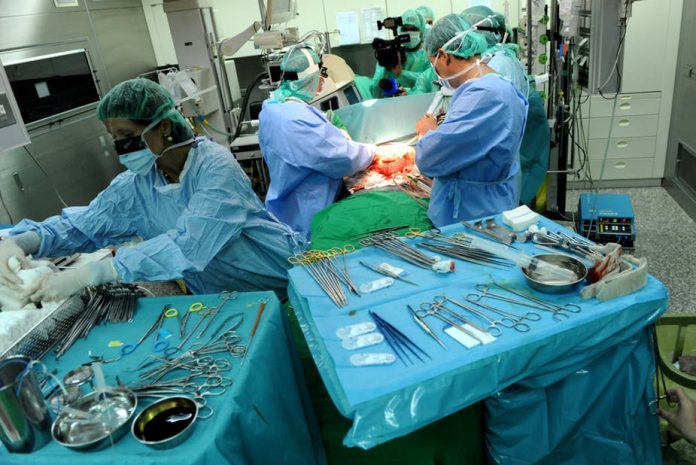Surgeons at Baltimore’s John Hopkins University completed what is believed to be the first transplant of an HIV-positive organ from a live donor this week, showing that HIV-positive individuals are healthy enough to be effective donors.
“Here’s a disease that in the past was a death sentence and now has been so well controlled that it offers people with that disease an opportunity to save somebody else,” Dr. Dorry Segev, a Hopkins surgeon, told the Associated Press.
According to the AP, Nina Martinez of Atlanta originally hoped to donate her kidney to an HIV-positive friend in need, but he passed away before she was able to complete the pre-transplant health tests. She decided to move forward with the surgery in his honor and donate to a stranger in need.
As an avid runner, Martinez told the AP she knew she was “probably just as healthy as someone not living with HIV who was being evaluated as a kidney donor.”
People with HIV were historically discouraged from donating a kidney due to the concern their remaining kidney would be damaged by HIV or the medications used to treat it. Newer HIV medications are safer and more effective, however, making an HIV-positive person with no complications on par with an HIV-negative live kidney donor, Segev told the AP.
HIV-positive individuals can receive an organ from anyone, but HIV-positive donors can only give to others with the virus. The 2013 HIV Organ Policy Equity, or HOPE, Act allowed HIV-positive transplants of a kidney or liver as long as it was within a clinical study, reversing decades-old restrictions.
This has allowed over 100 kidney and liver transplants from deceased HIV-positive donors within the last three years, reports the AP, with no complications arising from pairs with different strains of the virus—an original concern.
According to the American Transplant Foundation, almost 114,000 people in the U.S. are on the waiting list for an organ transplant. It’s not counted how many of these people are living with HIV, but with live donors like Martinez, more people on the waiting list could receive the help they need.
“That’s one less person waiting for a limited resource,” Dr. Niraj Desai, the Hopkins surgeon caring for the recipient, told the AP. “That helps everybody on the list.”








